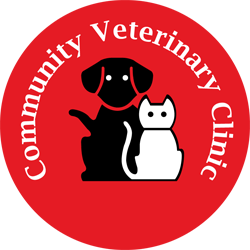Feline Immunodeficiency Virus (FIV) and the Felina Leukemia Virus (FeLV) are two of the most important infectious feline diseases worldwide. So much is misunderstood about these diseases and our mission is to help educate you about them.
Feline Immunodeficiency Virus (FIV) is a disease that affects a cat’s immune system. This is a cat only disease, which means that it cannot be spread to humans or to different species of animals. Most cats that test positive for FIV often live long, healthy and relatively normal lives with no symptoms. This disease has a wide range of affects varying between a cat becoming a “healthy” carrier, which means their body develops the antibodies to help become immune to the disease, or the cat’s immune system ends up being compromised. When their immune system becomes comprimised they are more susceptible to other illnesses such as Upper Respitory Infections (URI) and makes it more difficult for them to fight the illness off. FIV is not easily spread between cats since it cannot be spread by litter boxes, food or water dishes, or by playing or snuggling. The virus can only be spread by blood transfusions, badly infected gums, penetrating bite wounds, or in-utero from mother to offspring. If your cat is positive for FIV make sure to feed them a high quality diet and keep them indoors and free from stress. Treat any secondary infection as soon as symptoms arrive to best care for you FIV positive feline.
Feline Leukemia Virus (FeLV) is a virus that can cause anemia and lymphoma as well as other serious illnesses. FeLV is a disease that also suppresses the immune system, making it harder for them to fight against bacteria. A little over half of FeLV positive cats may live many years in a healthy state the remaining percent of adult FeLV positive cats succumb to the disease. FeLV is commonly spread through saliva, so any mutual grooming, nose to nose contact, and shared water bowls can become sources of infection. It takes a large amount of the virus to infect another cat so only prolonged contact or a bite wound from an infected cat is necessary to transmit the disease. Keep your FeLV positive cat indoors as to not spread the virus to other cats and to also protect your cat from exposure to other diseases. Vaccinating healthy cats is also a way to help control the spread of the FeLV virus.
Caring for FeLV/FIV Positive Cats is keeping them healthy by detecting any problems early, and treating any associated diseases promptly and aggressively, so they can enjoy a maximum quanity and quality of life.
For more information on FeLV and FIV please visit Fix Our Ferals.

